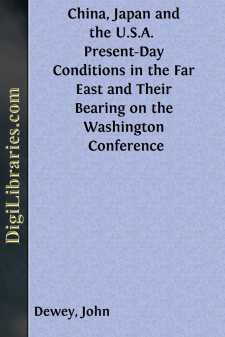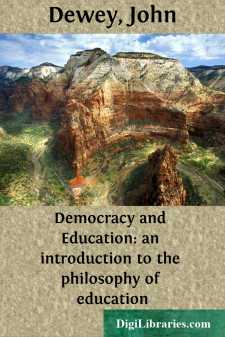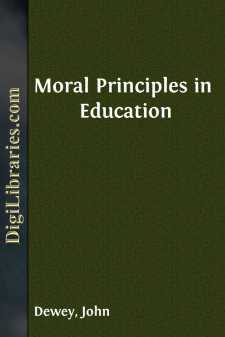Categories
- Antiques & Collectibles 13
- Architecture 36
- Art 48
- Bibles 22
- Biography & Autobiography 813
- Body, Mind & Spirit 142
- Business & Economics 28
- Children's Books 17
- Children's Fiction 14
- Computers 4
- Cooking 94
- Crafts & Hobbies 4
- Drama 346
- Education 46
- Family & Relationships 57
- Fiction 11829
- Games 19
- Gardening 17
- Health & Fitness 34
- History 1377
- House & Home 1
- Humor 147
- Juvenile Fiction 1873
- Juvenile Nonfiction 202
- Language Arts & Disciplines 88
- Law 16
- Literary Collections 686
- Literary Criticism 179
- Mathematics 13
- Medical 41
- Music 40
- Nature 179
- Non-Classifiable 1768
- Performing Arts 7
- Periodicals 1453
- Philosophy 64
- Photography 2
- Poetry 896
- Political Science 203
- Psychology 42
- Reference 154
- Religion 513
- Science 126
- Self-Help 84
- Social Science 81
- Sports & Recreation 34
- Study Aids 3
- Technology & Engineering 59
- Transportation 23
- Travel 463
- True Crime 29
John Dewey
John Dewey was an American philosopher, psychologist, and educational reformer, regarded as one of the most influential figures in the development of modern educational theory. He is best known for his advocacy of progressive education and experiential learning, emphasizing the importance of practical, hands-on learning experiences in "Democracy and Education" (1916). Dewey's philosophical work, grounded in pragmatism, also significantly influenced social reform and political philosophy. In "Experience and Nature" (1925), he explored the connections between human experience and the natural world, advocating for a more scientific and democratic approach to problem-solving in society.
Author's Books:
Sort by:
by:
John Dewey
On Two Sides of the Eastern Seas It is three days’ easy journey from Japan to China. It is doubtful whether anywhere in the world another journey of the same length brings with it such a complete change of political temper and belief. Certainly it is greater than the alteration perceived in journeying directly from San Francisco to Shanghai. The difference is not one in customs and modes of life;...
more...
by:
John Dewey
The Child and the Curriculum Profound differences in theory are never gratuitous or invented. They grow out of conflicting elements in a genuine problem—a problem which is genuine just because the elements, taken as they stand, are conflicting. Any significant problem involves conditions that for the moment contradict each other. Solution comes only by getting away from the meaning of terms that is...
more...
by:
John Dewey
Chapter One: Education as a Necessity of Life 1. Renewal of Life by Transmission. The most notable distinction between living and inanimate things is that the former maintain themselves by renewal. A stone when struck resists. If its resistance is greater than the force of the blow struck, it remains outwardly unchanged. Otherwise, it is shattered into smaller bits. Never does the stone attempt to...
more...
by:
John Dewey
Education as a public business It is one of the complaints of the schoolmaster that the public does not defer to his professional opinion as completely as it does to that of practitioners in other professions. At first sight it might seem as though this indicated a defect either in the public or in the profession; and yet a wider view of the situation would suggest that such a conclusion is not a...
more...





